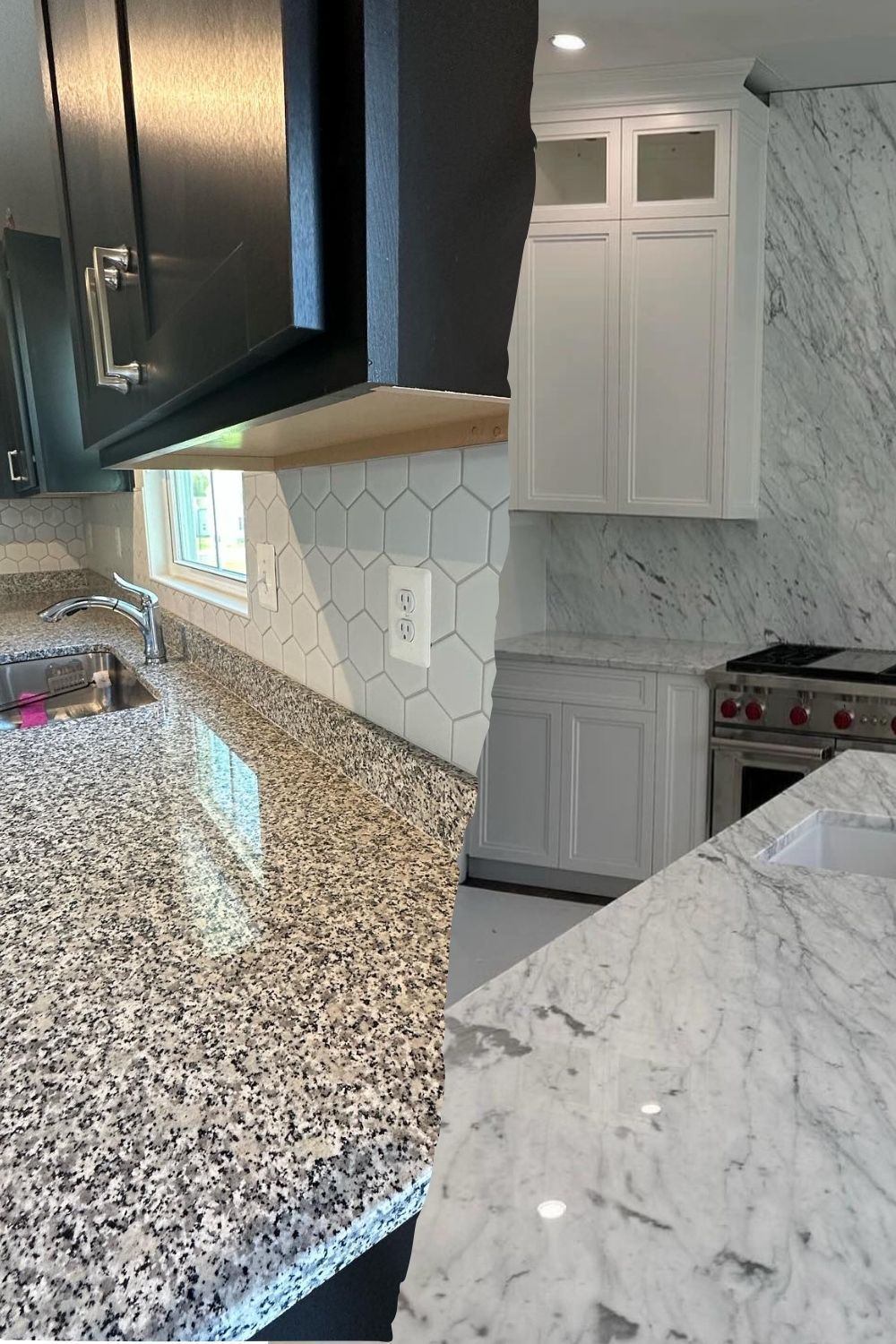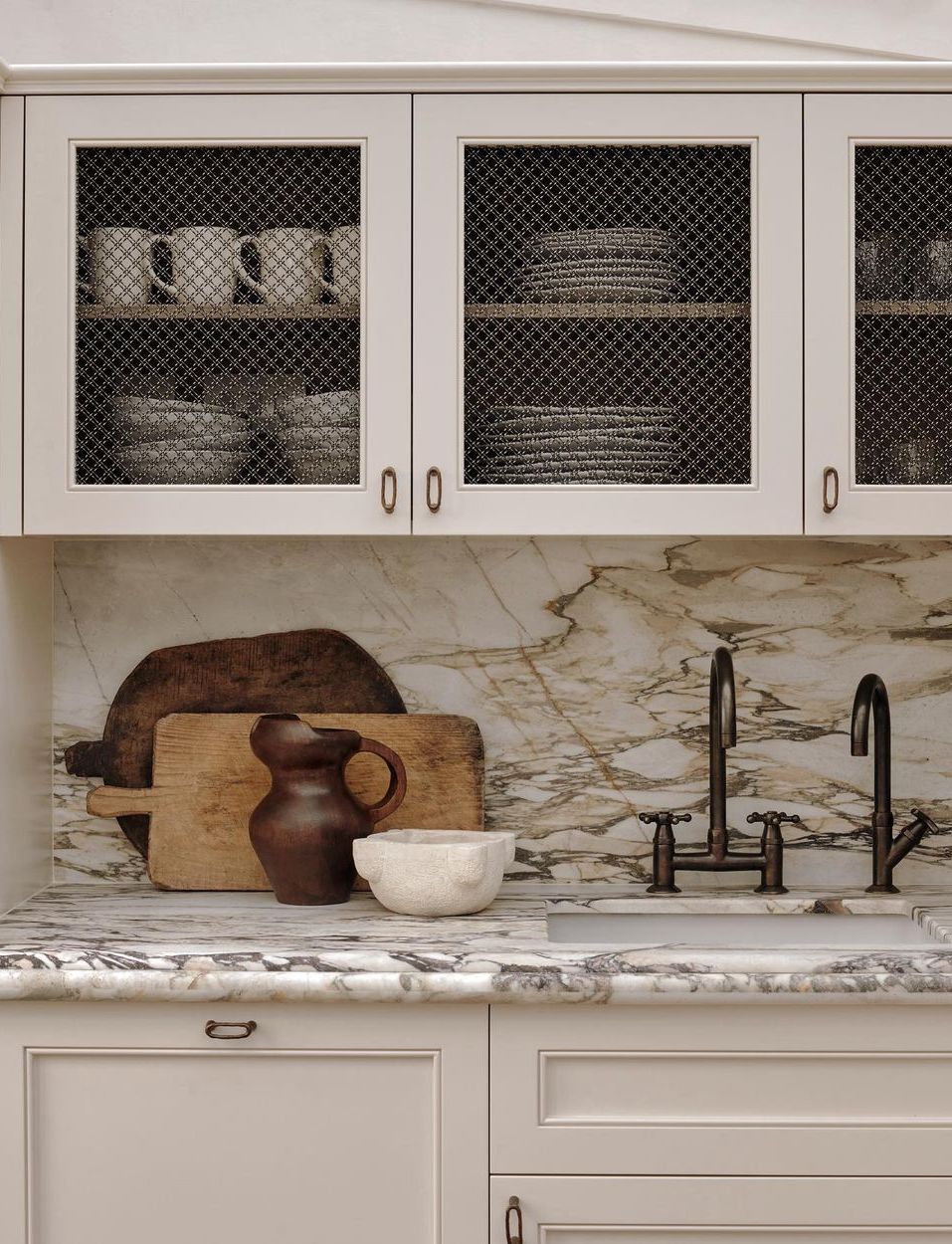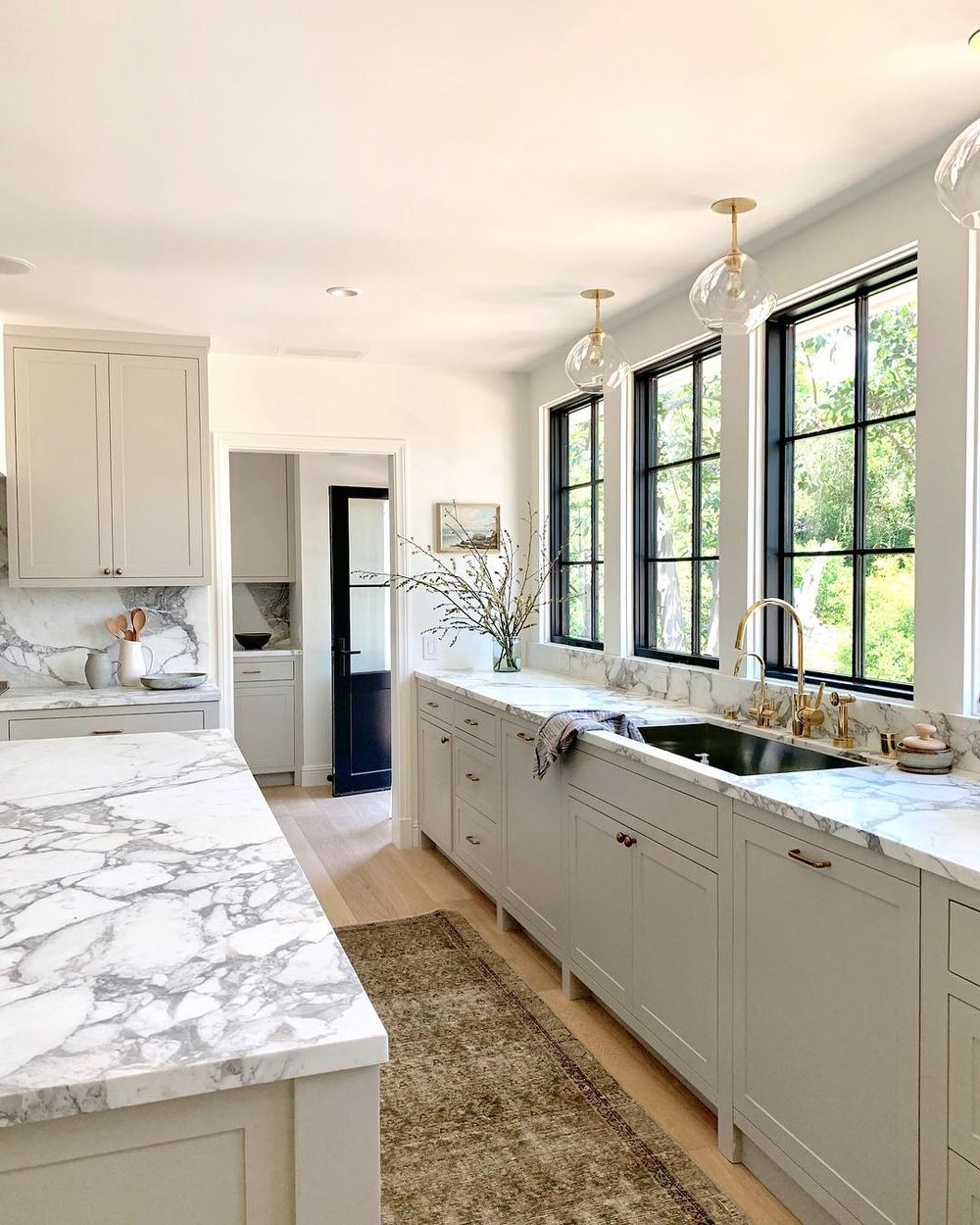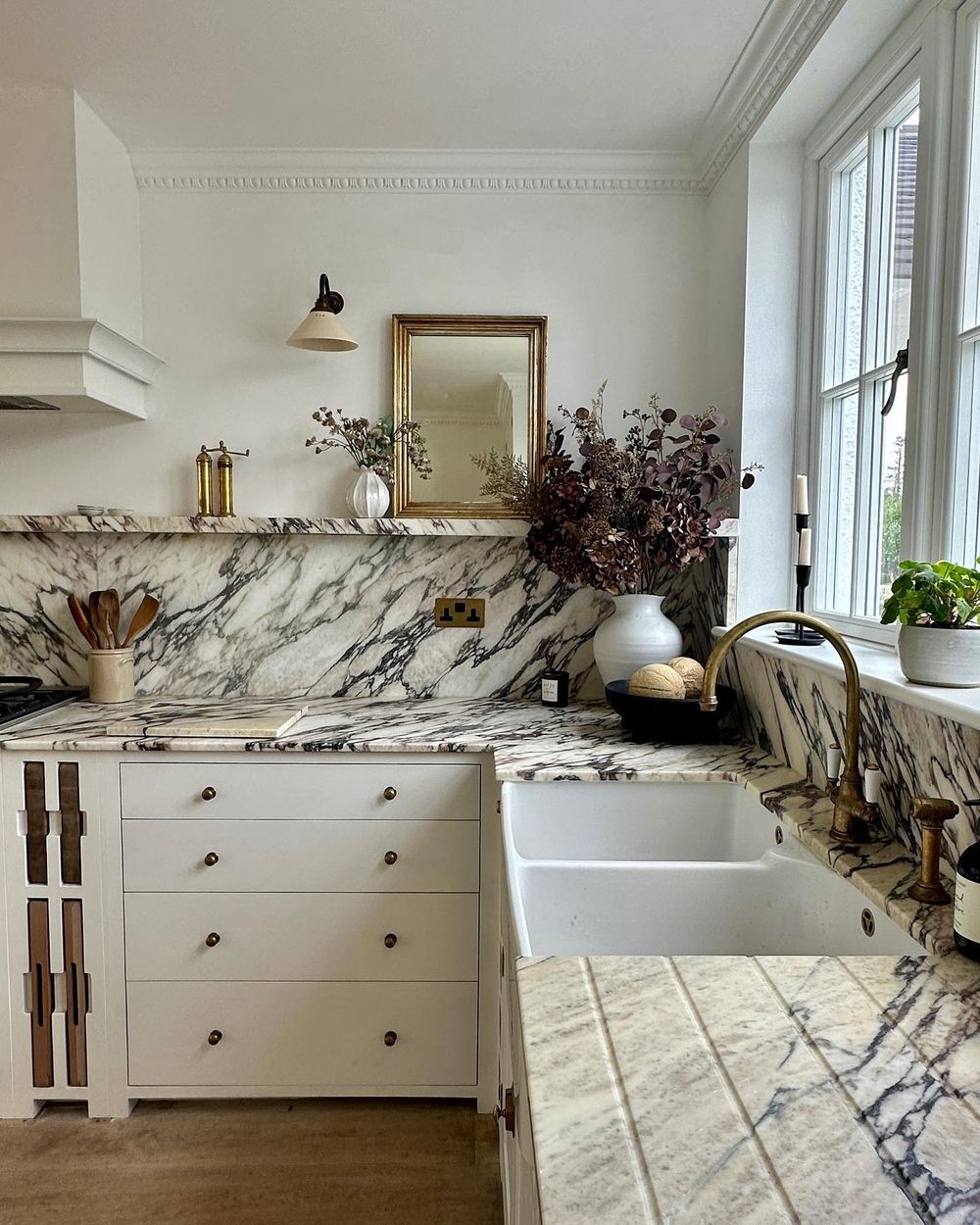When choosing countertops for your kitchen, there are several factors to consider. Two of the most popular materials today in kitchen design are marble and granite. Both have their unique benefits and drawbacks, so you must weigh all the options before deciding.
Why Choose Marble
Marble countertops are prized for their classic beauty and elegant appearance. They can instantly add luxury to any kitchen, and they can be found in various colors and patterns.
However, marble is a soft material, so it’s more susceptible to scratches and stains than granite. In addition, marble countertops must be sealed regularly to keep them looking their best.
Why Choose Granite
Granite countertops are also very popular, and they offer several advantages over marble. Granite is a hard material that is resistant to scratches and stains. It’s also easy to clean and maintain. However, granite countertops can be quite expensive, and they are not as heat-resistant as marble.
Deciding Between Marble and Granite
Marble and granite are both popular choices for countertops, and each has its own unique characteristics. Here’s a comparison between marble and granite countertops to help you make an informed decision:
Appearance
Marble: Known for its elegant and timeless appearance, marble typically features soft veining and a smooth, polished surface. It comes in lighter colors, including white, gray, beige, and more.
Granite: Granite has a more varied appearance, with a speckled or mottled pattern. It comes in many darker colors like blacks, blues, greens, grays, and earth tones.
Durability
Marble: While marble is relatively durable, it is more susceptible to scratches and stains compared to granite. It is also more sensitive to acidic substances, which can cause etching on the surface.
Granite: Granite is generally more durable than marble. It is resistant to scratches and stains and is less likely to be damaged by acidic substances. However, it still requires proper sealing to maintain its durability.
Maintenance
Marble: Requires more maintenance, including regular sealing to protect against stains and spills. It’s important to clean up spills promptly to prevent damage.
Granite: Requires less maintenance than marble but should still be sealed periodically to maintain its resistance to stains and ensure longevity.
Cost
Marble: Marble tends to be more expensive than granite. The cost can vary based on factors such as the type of marble and its origin.
Granite: Generally more cost-effective than marble, making it a popular choice for those on a budget.
Heat Resistance
Marble: Moderately heat-resistant, but prolonged exposure to high temperatures can cause damage.
Granite: More heat-resistant than marble. However, it’s still advisable to use trivets or hot pads to protect the surface.
Application
Marble: Often chosen for bathroom vanities, fireplace surrounds, and other areas where a touch of elegance is desired.
Granite: Widely used for kitchen countertops due to its durability and resistance to stains.
So, which material is suitable for you? The answer depends on your needs and preferences. If you want a classic look for your kitchen, marble may be the best choice. Granite may be better if you’re looking for a durable and easy-to-maintain countertop.
If you prioritize a classic, luxurious look and are willing to invest in maintenance, marble may be the right choice. If durability, versatility, and a wider range of color options are more important, granite might be the better option.
Ultimately, the decision is up to you!




